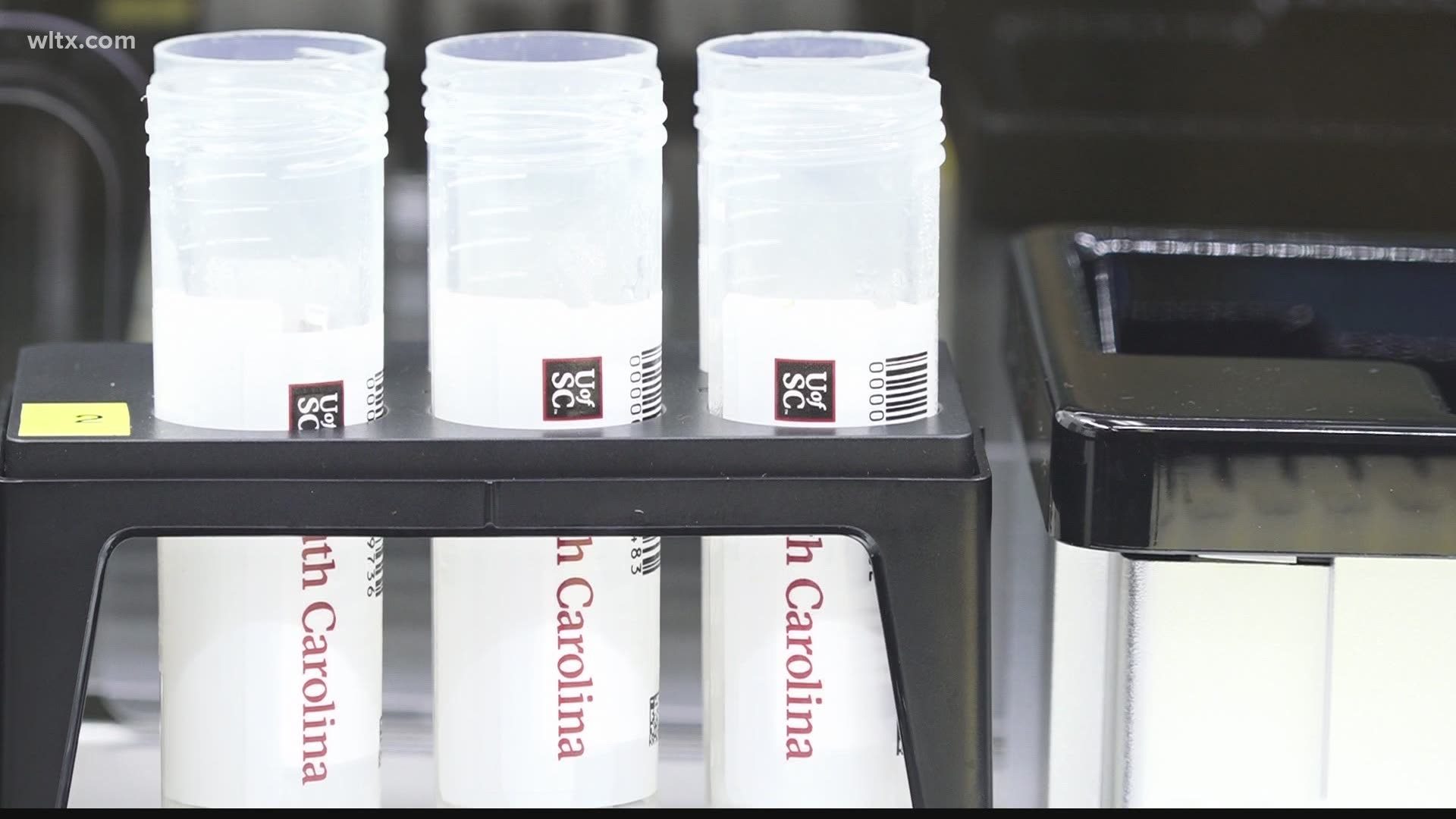COLUMBIA, S.C. — The University of South Carolina began administering saliva-based COVID-19 test on Wednesday afternoon.
They were able to test 300 students, faculty and staff between 10 a.m. and 2 p.m. and plan to give their results within 24 hours.
"We've been working on this saliva test since before the shutdown and in late February," says Dr. Carolyn Banister, research assistant professor for the College of Pharmacy at USC. "This test is free for USC faculty, staff and students. We are hoping in the future to extend this out to the community, but for right now we want to keep the population safe on campus, which will keep Columbia community safe."
Researchers with the College of Pharmacy developed the test. The test, which has been approved by the S.C. Department of Health and Environmental Control (DHEC) and is Clinical Laboratory Improvement Amendments (CLIA) certified, is just as accurate as the nasal swab and doesn't require certified personnel to collect the samples. They are still seeking approval by the FDA, but have been given the go-ahead to begin administering the test.
In the lab, where News 19 saw several dozen samples being collected, researchers are using new equipment gifted from Nephron Pharmaceuticals.
"We have had a longstanding partnership with Nephron," says Banister. "Not only have they donated one of the robots that helps us with the liquid handling, they also have donated all of the collection tubes and had them barcoded for us. That has really sped things along."
Nephron's CEO, says they working to partner with Coastal Carolina University, Clemson University, and the Medical University of South Carolina to help with testing.
"We want to be good citizens to all of the students at all of the universities across the state," says Nephron CEO Lou Kennedy. "We want all South Carolinians to be tested and healthy and back up and operational."
"This is a really powerful thing that if everyone is tested at the same time," says Banister. "That you have confidence that you will not have that virus and you can have normal interactions with people."
Through the trial phase, USC has tested nearly 8,000 people. They plan to continue testing throughout the semester.

